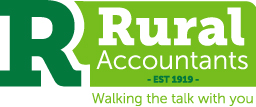- Whakatane 07 308 5015
Understanding the Implications of the Trustee Tax Rate Increase

On April 1st, New Zealand is set to implement a significant change in its tax policy that will affect trustees and beneficiaries alike. The trustee tax rate is slated to increase from its current level to 39%. This move is poised to have far-reaching implications across the financial landscape of the country, impacting trusts, estates, and the individuals involved. Let's delve deeper into what this change means and how it might influence various stakeholders.
The Rationale Behind the Increase
The decision to raise the trustee tax rate to 39% stems from the New Zealand government's broader fiscal policies and revenue needs. Such adjustments in tax rates are often part of a government's strategy to manage its budget, address fiscal deficits, or fund public services and initiatives. By increasing the tax rate for trustees, the government aims to generate additional revenue to support its various socio-economic programs and infrastructure projects.
Impact on Trustees and Trusts
Trustees, who play a crucial role in managing assets and distributing income to beneficiaries, will face the immediate impact of this tax rate hike. The higher tax rate means that a larger portion of the trust's income will be directed towards tax obligations, potentially reducing the amount available for distribution or reinvestment. Trusts holding significant assets or generating substantial income will particularly feel the pinch of this change, necessitating careful planning and possibly adjustments to financial strategies.
Considerations for Beneficiaries
Beneficiaries of trusts will also need to assess the implications of the increased trustee tax rate on their financial circumstances. Depending on how distributions are structured and the specific terms of the trust deed, beneficiaries may experience changes in the amount and timing of distributions. Additionally, beneficiaries who receive income from trusts may see a greater portion of their earnings allocated to taxes, impacting their overall financial planning and tax liabilities.
Estate Planning and Tax Management
Given the impending tax rate hike, individuals and families engaged in estate planning or asset management activities should reevaluate their strategies in light of the new tax landscape. This may involve reviewing existing trust structures, considering alternative tax-efficient vehicles, or exploring options for mitigating tax liabilities through prudent financial planning techniques. Seeking guidance from financial advisors, tax professionals, or legal experts can be invaluable in navigating these complexities and optimizing tax outcomes.
Navigating the Regulatory Environment
As with any significant tax policy change, it's essential for trustees, beneficiaries, and other stakeholders to stay informed about regulatory updates and compliance requirements. Understanding the nuances of the new tax rules, filing obligations, and potential exemptions or deductions is crucial for ensuring adherence to the law and minimizing the risk of penalties or legal complications. Proactive engagement with tax authorities or professional advisors can help address any uncertainties and ensure compliance with regulatory standards.
Get Advice Now
The forthcoming increase in New Zealand's trustee tax rate to 39% heralds a notable shift in the country's tax landscape, with implications for trustees, beneficiaries, and the broader financial ecosystem. While the change presents challenges, it also underscores the importance of proactive planning, prudent decision-making, and staying abreast of regulatory developments.
By carefully assessing the impact of this tax rate hike and adopting strategic approaches to tax management and financial planning, individuals and families can navigate the evolving landscape with confidence and resilience. Contact us your Rural Chartered Accountant client manager for advice and ensure your tax is managed accurately.
